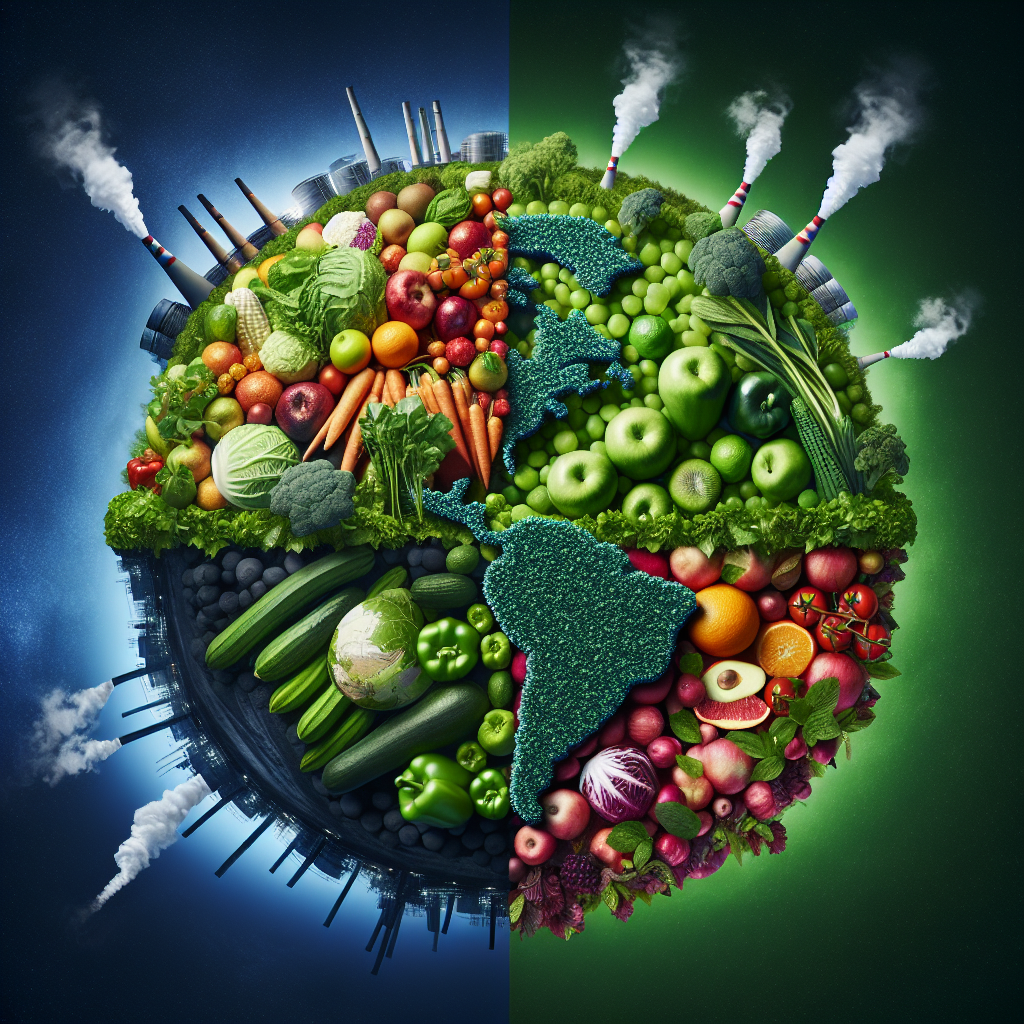The Power of Plant-Based Diets in Reducing Greenhouse Gas Emissions
The conversation around climate change has intensified over the past few decades, with a significant focus on reducing greenhouse gas (GHG) emissions. Among the various strategies proposed to mitigate these emissions, altering human dietary patterns, specifically transitioning towards plant-based diets, has emerged as a potent solution. This transition not only promises substantial environmental benefits but also offers a plethora of health advantages.
Understanding the Impact of Animal Agriculture
Animal agriculture is a major contributor to GHG emissions, responsible for an estimated 14.5% of the global total, according to the Food and Agriculture Organization of the United Nations. These emissions arise from various sources within the sector, including enteric fermentation in ruminants, manure management, feed production, and land use changes. The production of livestock feed is particularly resource-intensive, requiring large amounts of water, fertilizers, and land, which further exacerbate the environmental footprint of meat consumption.
The Environmental Benefits of Plant-Based Diets
Transitioning to a plant-based diet can significantly reduce one’s carbon footprint. A study published in the journal “Science” in 2018 highlighted that moving away from meat and dairy products could reduce an individual’s carbon footprint from food by up to 73%. This dramatic reduction is primarily because plants are more efficient sources of food. They require less energy, water, and land to produce the same amount of calories and nutrients compared to animal products.
Moreover, adopting plant-based diets can also help in conserving biodiversity and reducing the pressure on wildlands. Animal agriculture is a leading cause of deforestation, especially in tropical regions, to create pasture and crop lands for animal feed. By reducing the demand for animal products, we can decrease the need to convert forests into agricultural land, thereby preserving habitats for countless species and maintaining ecological balance.
Health Implications of Plant-Based Diets
The benefits of plant-based diets extend beyond environmental conservation. Numerous studies have shown that diets high in fruits, vegetables, legumes, nuts, and whole grains, and low in animal products, can lead to reduced risks of heart disease, hypertension, diabetes, and certain types of cancer. Plant-based diets are rich in dietary fiber, vitamins, and phytonutrients, all of which contribute to overall health and well-being.
Addressing the Protein Concern
One of the most common misconceptions about plant-based diets is the concern about adequate protein intake. However, many plant-based foods are rich in protein, such as lentils, chickpeas, tofu, quinoa, and almonds. By diversifying food choices and planning meals thoughtfully, it is entirely possible to meet and even exceed the recommended daily protein intake through a plant-based diet.
The Role of Policy and Individual Choices
To harness the full potential of plant-based diets in reducing GHG emissions, both policy interventions and individual dietary choices are crucial. Governments and institutions can play a significant role by promoting plant-based options through educational campaigns, subsidies for plant-based products, and by incorporating sustainable food choices into public institutions like schools and hospitals.
On the individual level, every person can contribute by making more conscious food choices. This doesn’t necessarily mean becoming vegan or vegetarian overnight but rather incorporating more plant-based meals into one’s diet and reducing the consumption of animal products.
FAQs on Plant-Based Diets and Greenhouse Gas Emissions
1. Can changing my diet really make a difference in climate change?
Yes, individual dietary choices can collectively have a significant impact on reducing GHG emissions. If a large number of people adopt plant-based diets, the demand for animal products will decrease, leading to lower emissions from animal agriculture.
2. Isn’t meat consumption necessary for a balanced diet?
While meat can be a source of important nutrients, it is not indispensable. A well-planned plant-based diet can provide all the necessary nutrients, including protein, iron, and vitamins, required for a healthy and balanced diet.
3. How can I ensure I’m getting enough protein on a plant-based diet?
Incorporate a variety of protein-rich plant foods into your diet, such as legumes, grains, nuts, seeds, and soy products. Eating a diverse range of foods will ensure you get all the essential amino acids and nutrients.
4. Are plant-based diets more expensive than diets that include meat?
The cost of a plant-based diet can vary, but many staple plant-based foods, like beans, rice, and vegetables, are generally less expensive than meat and dairy products. Additionally, the long-term health benefits associated with plant-based diets can lead to reduced healthcare costs.
5. What can I do if I’m not ready to give up meat entirely?
You don’t have to eliminate meat completely to make a positive impact. Consider adopting a “flexitarian” approach by reducing meat consumption and incorporating more plant-based meals into your diet. Even small changes can make a significant difference.
In conclusion, the power of plant-based diets in reducing greenhouse gas emissions is undeniable. By transitioning towards more sustainable dietary patterns, we can significantly mitigate our environmental impact and contribute to the fight against climate change, all while reaping health benefits. The choice to adopt a plant-based diet is not just a personal one; it’s a collective step towards a more sustainable and healthy planet.

